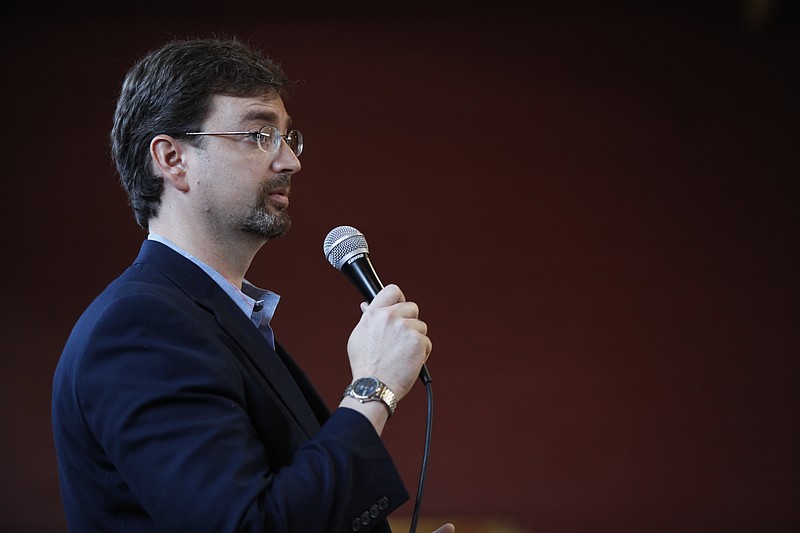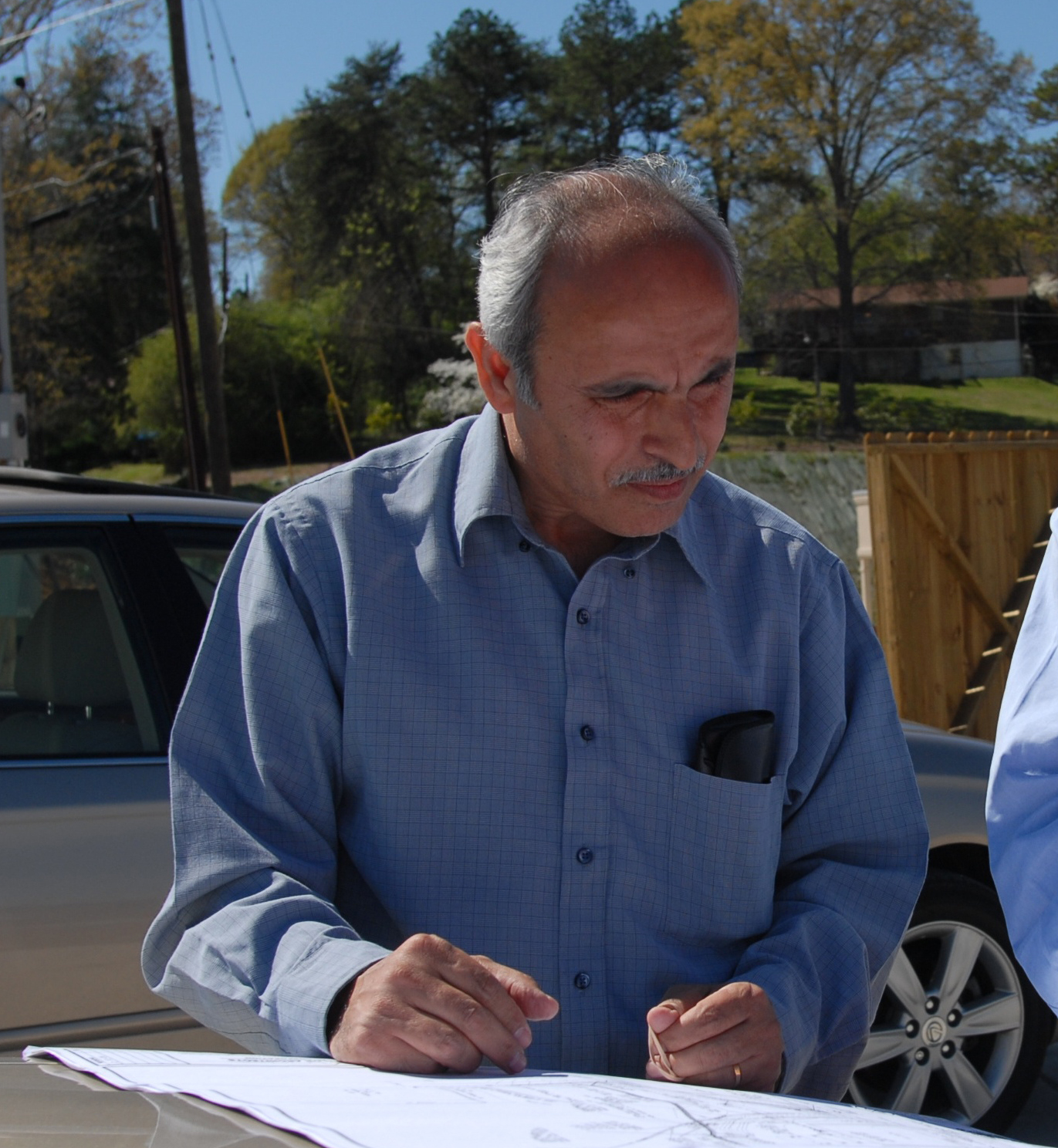The prosecutor stood in front of a group of about 50 in the downtown library Monday evening and posed what felt like a simple question.
"Who here has heard the term 'Islamic terrorism'?" Hamilton County Assistant District Attorney Boyd Patterson asked, to a soft wave of laughter in the auditorium. "What does that mean?"
"Extremists," one woman said.
"Kill the infidels," said another.
"Kill in the name of Allah," a man chimed in.
Patterson conceded that the question seemed simple. But he wanted to unpack the question, to dig underneath what felt like an easy response. He wanted to do what lawyers do best. He wanted to argue.
Patterson, who is running next year for an open Criminal Court judge seat, told the crowd that he began researching the Quran after Sept. 11, 2001. Then, after the July 16 shooting here left five military servicemen dead, he decided to publish a short book, "A Chattanooga Citizen's Search for the Spiritual Foundation of Islamic Terrorism."
The purpose of the book, Patterson wrote, is for people from the Bible Belt like himself to understand Islam. As news events show terrorists shooting and bombing innocents in the name of the faith, Patterson hopes locals will educate themselves on the religion. On Monday night, he reserved a room at the library for people to learn more - and to debate.
Patterson began the event with a slideshow. He showed a picture of the Twin Towers on Sept. 11, of the Charlie Hebdo shooting in France, and of the most recent attacks in Paris. He also showed a photo of Mohammad Youssef Abdulazeez, the man who shot and killed the four Marines and a Navy officer on July 16.
"What was going through that guy's head?" Patterson asked the crowd.
He added: "I've always been interested in the overlap between crime and psychology."
Bassam Issa, the president of the Islamic Society of Greater Chattanooga, also gave a presentation at Monday's event. He told the crowd of the origins of the Muslim faith, about how the prophet Muhammad began, at the age of 40, to write messages he said were from God.
Those verses called for his followers to become avid readers, to donate to the poor, to stop burying some girls alive, to give women the right to choose their husbands, to free their slaves.
"He was a revolutionary," Issa said. "He was changing the social and economical landscape."
Issa also attempted to explain the Quran's inflammatory verses, like 4:74, which reads, "He who fights in the cause of Allah and is killed or achieves victory - We will bestow upon him a great reward."
Issa told the audience that Muhammad wrote verses as real-world circumstances dictated. As the Muslims were under attack, he said, the verses were written to motivate followers to defend themselves. He described the Muslims in those years as underdogs, attacked and outnumbered by thousands.
He said the Quran is filled with verses preaching peace, but these particular verses about fighting were necessary at that specific moment. Issa also pulled up Old Testament verses of the Bible that allowed followers in those times to attack their own enemies.
"These verses to fight the infidels, the Christians, the Chinese, whoever," Issa said, "it doesn't fit. It was historical context."
When Issa pointed out that men claiming to be Christians slaughtered their enemies during the Crusades, some members of the audience objected, arguing that those fighters had misinterpreted the Bible. Mark West, president of the Chattanooga Tea Party, said the most important distinction between the religions can be found when comparing Muhammad to the Christian leaders of the New Testament.
While Jesus and many apostles died for their faith, West argued, Muhammad fought back.
"His legacy continues to this day," West said, "unfortunately."
West argued that Issa's interpretation of the Muslim faith is more peaceful than many people's interpretations. He said Muhammad's actions led to those violent spins on the faith.
Issa, in turn, said groups like the Islamic State have hijacked the Quran, not because of Muhammad, but because of the secular circumstances they face. He argued that the most important factor is this: Many followers are poor and uneducated, and many of their leaders are corrupt.
Contact staff writer Tyler Jett at tjett@timesfreepress.com or at 423-757-6476.


